Suit tossed out of Tokyo district court in rare win for idols’ romantic freedom.
law (Page 6)
In about a week, Halloween, cosplayers‘ favorite holiday, will be upon us. Millions of people — increasingly including Japanese — will take to the streets in costume, and much of it will be cosplay. But some of this activity may actually be against Japanese law.
Idol singers exist in an extremely specialized, and often contradictory, corner of the already specialized Japanese pop music industry. Successful idols are expected to walk the fine line between having a polished, attractive appearance and an approachable, unassuming aura. Even more ironic is that while their songs’ lyrics are often focused on love and devotion, it’s practically unheard of for an active idol to openly be in a romantic relationship.
Every now and again, though, word gets out that an idol secretly has a boyfriend, or had an illicit liaison with a guy. The revelation is usually followed by a solemn apology to fans, and often the offending member being removed from the group. But this time the story of an idol’s amorous activities coming to light has something we’ve never heard about before: a court-ordered fine equivalent to several thousand dollars for breach of contract.
In a lot of major cities around the world, people are hesitant to get involved when they see an injured person. After all, if movies have taught us one thing, it’s that the people who go to check on the fallen hero are often the first to get picked off by a terminator or Mike Myers in hot pursuit.
At best stopping to assist someone with a wound will likely set you off on a journey that Peter Travers of Rolling Stone calls “an rip-roaring, edge-of-your-seat adventure” and seriously, who has time for all that?
That might be why Good Samaritans are hard to come by in big cities everywhere, and in Beijing the government is looking to change that by offering protections in what is casually being referred to as the Good Person Protection Ordinance. However, rather than killbots and monsters, this measure will protect helpful souls from a much more real threat.
On 23 June the Japan Tourism Agency (JTA) announced that it would be conducting a first-of-its-kind study into public bathing facilities such as onsen (hot springs) and sento (bath houses), and their rules regarding tattoos.
Visitors to Japan are often warned that if they want to visit one of Japan’s hundreds of natural springs or meticulously designed baths they can’t be inked up. But how widespread is this rule in Japan really, and is it doing more harm than good in this day and age? These are the things the JTA hopes to learn more about in the weeks to come.
Earlier this week, what is being hailed as Japan’s “trial of the century” by many (in our office) has come to an abrupt end. The Osaka District Court handed down some rough justice in the case of a company president who sued the building he was renting office space from to the tune of 840,000 yen (US$6,800).
The president’s claim that the building’s urinals had caused excessive splash-back of pee were dismissed due to several reasons including the president’s own “pee experiments” being deemed inadmissible by the courts.
Was the president a quack who didn’t know how to urinate correctly? Or was he a victim of greedy cost cutting landlords and toilet moguls? This is their story based on court documents.
Okay, Rocketeers, time for a pop quiz: what is Japanese sake? Turns out the question is actually a little more complicated than it looks on the surface.
A few days ago, we brought you a list of 14 things never to do on a bicycle in Japan in light of new cycling traffic laws that went into effect on June 1. Of course, the new, stricter laws are intended to promote bicycle safety and reduce accidents, but they mean a lot of cyclists in Japan are going to have to give up on some of their old bad habits, like riding while listening to music.
There’s a little speculation that riding with headphones in but no music on, and riding with just one earpiece in (although that sounds to us like a recipe for disaster when the other dangling earbud inevitably gets caught in your spokes) are probably not going to get you jail time or anything, but we like to play it safe here at RocketNews24, at least until happy hour rolls around.
So, when one of our Japanese writers – a noted music lover – was pondering other ways to get his music fix while commuting by bike, he stumbled on what seemed like an easy solution: If the law says you can’t ride with earbuds in your ears, well, just shove those suckers right up your schnoz. It’s so simple it just has to work!
As you probably know, bicycles are an incredibly common method of transportation in Japan. They’ve also been a source of many accidents in the country, and police have taken an increasingly strict approach to dealing with law-breaking cyclists. New rules have recently been implemented to keep the country’s streets from turning into a crazy, Mad Max-esque bicycle dystopia, and one that’s really got people’s attention is a prohibition on earphones/headphones while cycling.
The exact rule and punishment seems to vary from location to location, but wearing earphones in both ears is sure to get you at least a warning, and in some places, Tokyo included, even just one ear is now against the law. But, one of our intrepid RocketNews24 Japan writers thought, what about earphones on your nipples?
Pedestrian crosswalk laws are all over the place no matter where you go. What’s considered jaywalking varies by country, and in the U.S. each state has its own laws for exactly how far the pedestrian needs to have crossed on the crosswalk before you have to stop.
In Japan, typically vehicles are expected to yield to anyone in a crosswalk at all times. That’s why the judge’s decision in a recent landmark case is taking the country by storm right now: a cyclist was killed by a car in a crosswalk, and the motorist was found to be in no way at fault.
On 3 April Guangzhou City in Guangdong Province, China, announced some changes to their organ donation laws. These changes will allow people beyond the immediate family to give permission to harvest a deceased person’s organs.
This is expected to be bad news for Guangzhou’s paranoid population, who must now expand their sphere of people likely to murder them in their sleep well beyond their wife and kids to include co-workers and other members of their community.
Imagine you’re relaxing at home one day when there’s a sudden knock at the door. Before you know it you’re sitting in a police interrogation room with people trying to get a confession out of you for a crime you know nothing about. Soon after, you are sentenced to prison for three years for a crime you never committed, only to be released and regarded by society as a convicted sex offender for the rest of your days.
That nightmare scenario played out for Hiroshi Yanagihara, a man who, well after serving his full prison sentence, was found innocent of all charges. Following that, an understandably upset Yanagihara went after the people who initially arrested and convicted him, demanding compensation and criminal charges.
As a result, on 9 March Toyama District Court awarded Hiroshi Yanagihara 19.7 million yen (US$161,000) – apparently the value of five years of his life.
In today’s globalized economy, it’s perfectly normal to be wearing shoes made in Malaysia, listening to an American pop star on a Korean smartphone while driving a German car fitted with Japanese tires. But how many times have you taken a good look to find out where those new jeans or those headphones you got for Christmas were really made?
Recently Japanese consumers have been discovering that some of their products are from “P.R.C.,” a country they had never heard of, and would like some answers on what appears to be a legal gray zone in product labeling regulations.
Illegally parking bicycles is a persistent problem in Japan, and one creative train station has come up with a new strategy to stop people from leaving bikes where they shouldn’t – by putting cute illustrations done by children on the ground!
On 1 December Yokohama customs and police departments announced the arrest of an allegedly high ranking 49-year-old member of the Sumiyoshikai yakuza group along with six other men in a case of smuggling. They found in his possession 17kg of rock salt, which was actually planted on him by Yokohama customs agents prior to his arrest. All involved are considering it a flawless example of proper law-enforcement.
If you’re confused by this then you might not be familiar with the police tactic known as “oyogasesosa” (swim investigation) or “controlled delivery” as it’s called in English speaking countries.
Japan tends to be a very drug-shy country. Most people you talk to will say that they’ve never gone anywhere near substances like marijuana, and according to a Public Library of Science survey, 98 times out of 100 they’re telling you the truth.
And yet you might be surprised to hear that there is an abundance of cannabis growing wild all over the northern island of Hokkaido. But before you go booking a ticket, you may want to learn why.
Last Friday, on the recommendation of a special committee the Abe cabinet agreed to suggested changes to the Fueiho laws which place severe and unclear regulations on dancing in Japan.
As we reported last week, under Fueiho (Act on Control and Improvement of Amusement and Entertainment Business), businesses such as nightclubs are required to operate under a loosely defined set of parameters. However, most didn’t. This led to a string of raids and closures which crippled the night club scene in much of Japan.
After these new changes pass through the Diet, clubs will be allowed to host dancing after midnight – provided the lighting is bright enough.
On 15 October it was reported that Masatoshi Kanemitsu would have to go back to court after being acquitted by the Osaka District Court. His alleged crime: allowing his customers to dance in the Umeda area club he owned called Noon.
This kind of law prohibiting dancing might sound straight out of some fundamentalist theocracy, but it’s alive and well in Japan. Actually, it’s far worse than a draconian “no dancing whatsoever” law that you know where things stand; nightclubs in Japan seem to allow dancing until someone in authority decides otherwise. There’s no way to know until officers start bursting through your doors.
This sword dangling over the heads of the remaining clubs is called the Act on Control and Improvement of Amusement and Entertainment Business or Fueiho for short. So let’s take a quick look at why this law is crushing dancing in Japan, and I’ll do my best to avoid any Footloose references.
It’s often said that nothing in life is certain except for death and taxes, but for one Osaka resident, that maxim was little more than an old wives’ tale.
One day, the taxman came calling to the tune of 816 million yen (US$7.7M) over years of unreported winning horse race bets. However, in a game where the house always wins, this guy managed to flip the script and knock down the money owed to a relatively modest 67 million yen ($635,000).

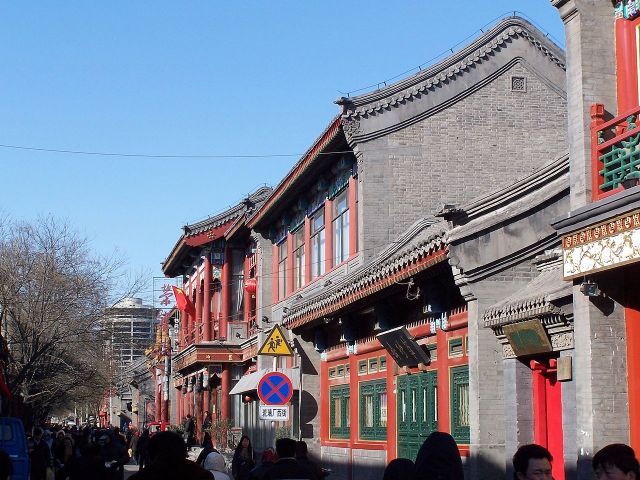
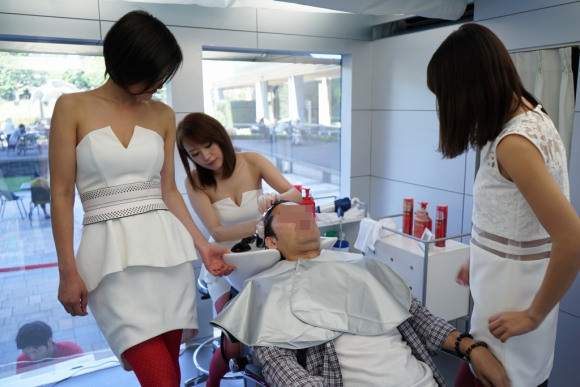


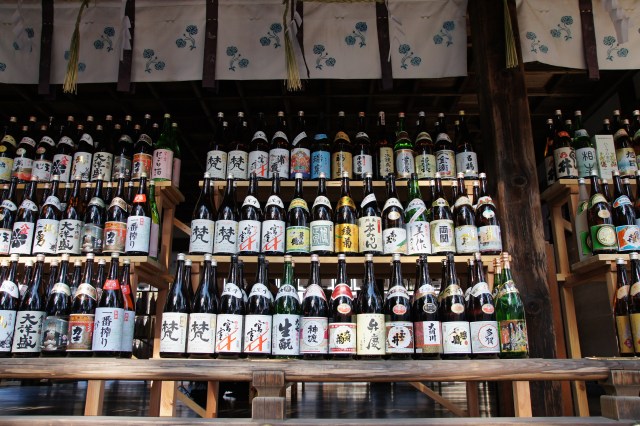
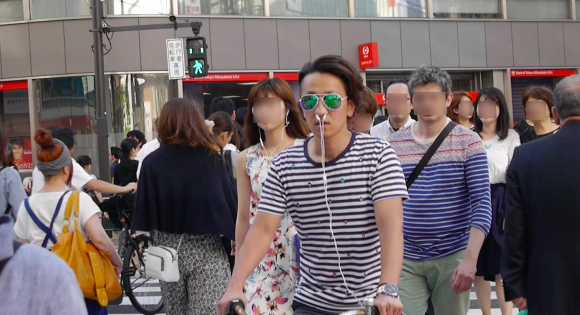
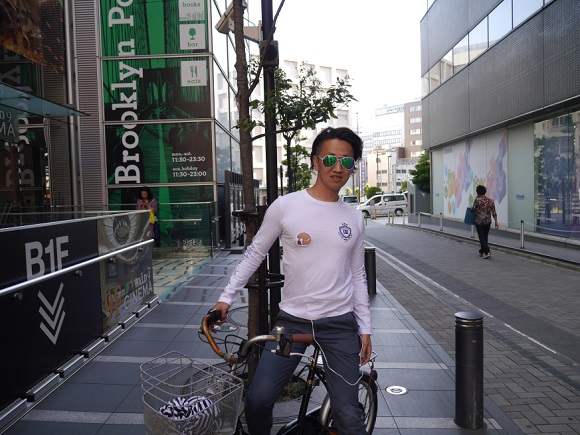
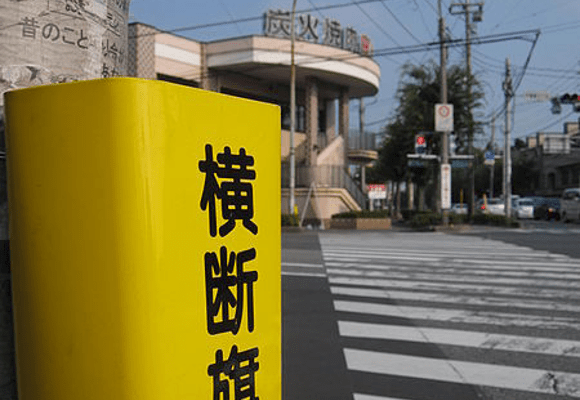



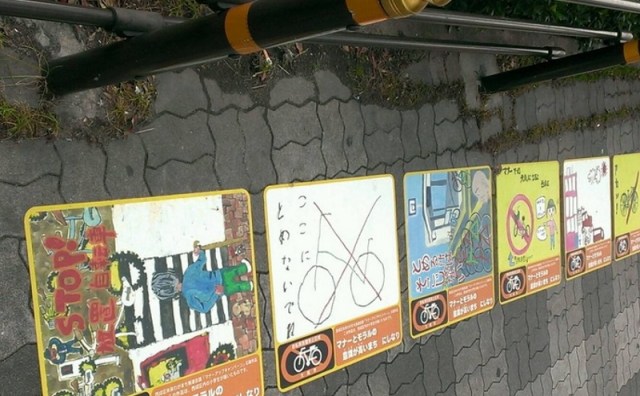


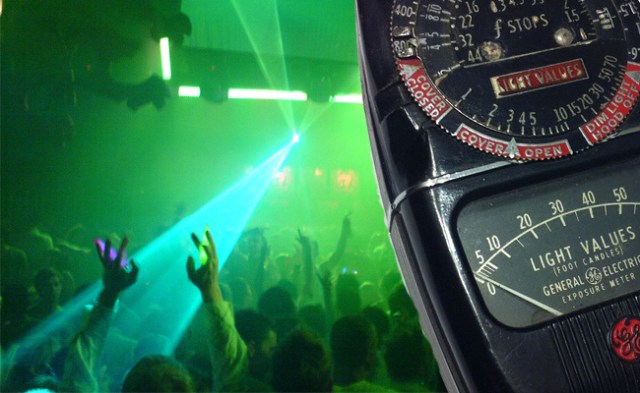


 Japan’s newest Shinkansen has no seats…or passengers [Video]
Japan’s newest Shinkansen has no seats…or passengers [Video] Foreigners accounting for over 80 percent of off-course skiers needing rescue in Japan’s Hokkaido
Foreigners accounting for over 80 percent of off-course skiers needing rescue in Japan’s Hokkaido Satisfy your sweet tooth with cheesecake and more all-you-can-eat sweets at Cheese Garden
Satisfy your sweet tooth with cheesecake and more all-you-can-eat sweets at Cheese Garden Our reporter is willing to die on the pseudo-Italian restaurant Olive Hill
Our reporter is willing to die on the pseudo-Italian restaurant Olive Hill Japan manners debate: Is it OK to put a Mister Donut donut back on the shelf after taking it?
Japan manners debate: Is it OK to put a Mister Donut donut back on the shelf after taking it? 420 million yen in cash-filled suitcases stolen on Tokyo streets, incidents at Haneda and Hong Kong follow
420 million yen in cash-filled suitcases stolen on Tokyo streets, incidents at Haneda and Hong Kong follow Man in Japan takes four parakeets hostage in attempt to force woman to meet with him
Man in Japan takes four parakeets hostage in attempt to force woman to meet with him A carlator is shaking things up on our way to one of Japan’s last revolving restaurants
A carlator is shaking things up on our way to one of Japan’s last revolving restaurants Say hello to Japan’s new stationmaster cat!【Video】
Say hello to Japan’s new stationmaster cat!【Video】 Unique RSVP causes Twitter to explode with hilarious ways to say “no”
Unique RSVP causes Twitter to explode with hilarious ways to say “no” Is China’s don’t-go-to-Japan warning affecting the lines at a popular Tokyo gyukatsu restaurant?
Is China’s don’t-go-to-Japan warning affecting the lines at a popular Tokyo gyukatsu restaurant? Three beautiful places to see Japan’s plum blossoms after starting your day in downtown Tokyo
Three beautiful places to see Japan’s plum blossoms after starting your day in downtown Tokyo Downloads of 39-year-old Guns N’ Roses song increase 12,166 percent thanks to Gundam
Downloads of 39-year-old Guns N’ Roses song increase 12,166 percent thanks to Gundam A look back on 40 years of Japanese schools banning stuff
A look back on 40 years of Japanese schools banning stuff Take a trip to Japan’s Dododo Land, the most irritating place on Earth
Take a trip to Japan’s Dododo Land, the most irritating place on Earth Huge Evangelion Unit-01 head appearing in lights in Japan to celebrate anime’s 30th anniversary
Huge Evangelion Unit-01 head appearing in lights in Japan to celebrate anime’s 30th anniversary New Family Mart cinema opens inside Japanese airport
New Family Mart cinema opens inside Japanese airport Man arrested in Japan after leaving car in coin parking lot for six years, racking up three-million-yen bill
Man arrested in Japan after leaving car in coin parking lot for six years, racking up three-million-yen bill Starbucks Japan releases new drinkware and goods for Valentine’s Day
Starbucks Japan releases new drinkware and goods for Valentine’s Day Japan releases first official sakura cherry blossom forecast for 2026
Japan releases first official sakura cherry blossom forecast for 2026 Archfiend Hello Kitty appears as Sanrio launches new team-up with Yu-Gi-Oh【Pics】
Archfiend Hello Kitty appears as Sanrio launches new team-up with Yu-Gi-Oh【Pics】 China’s don’t-go-to-Japan warning looks to be affecting tourist crowds on Miyajima
China’s don’t-go-to-Japan warning looks to be affecting tourist crowds on Miyajima Studio Ghibli releases new “komorebi” plush toys from Princess Mononoke and Spirited Away
Studio Ghibli releases new “komorebi” plush toys from Princess Mononoke and Spirited Away Yokai are descending upon Tokyo this spring in the latest immersive art experience
Yokai are descending upon Tokyo this spring in the latest immersive art experience Japan’s Naruto theme park now offering real-world version of Minato’s kunai ninja weapon
Japan’s Naruto theme park now offering real-world version of Minato’s kunai ninja weapon New Studio Ghibli stamps leave an impression on your stationery…and your heart
New Studio Ghibli stamps leave an impression on your stationery…and your heart Survey asks foreign tourists what bothered them in Japan, more than half gave same answer
Survey asks foreign tourists what bothered them in Japan, more than half gave same answer Japan’s human washing machines will go on sale to general public, demos to be held in Tokyo
Japan’s human washing machines will go on sale to general public, demos to be held in Tokyo We deeply regret going into this tunnel on our walk in the mountains of Japan
We deeply regret going into this tunnel on our walk in the mountains of Japan Studio Ghibli releases Kodama forest spirits from Princess Mononoke to light up your home
Studio Ghibli releases Kodama forest spirits from Princess Mononoke to light up your home Major Japanese hotel chain says reservations via overseas booking sites may not be valid
Major Japanese hotel chain says reservations via overseas booking sites may not be valid Put sesame oil in your coffee? Japanese maker says it’s the best way to start your day【Taste test】
Put sesame oil in your coffee? Japanese maker says it’s the best way to start your day【Taste test】 No more using real katana for tourism activities, Japan’s National Police Agency says
No more using real katana for tourism activities, Japan’s National Police Agency says Starbucks Japan reveals new sakura drinkware collection, inspired by evening cherry blossoms
Starbucks Japan reveals new sakura drinkware collection, inspired by evening cherry blossoms Updated cherry blossom forecast shows extra-long sakura season for Japan this year
Updated cherry blossom forecast shows extra-long sakura season for Japan this year 420 million yen in cash-filled suitcases stolen on Tokyo streets, incidents at Haneda and Hong Kong follow
420 million yen in cash-filled suitcases stolen on Tokyo streets, incidents at Haneda and Hong Kong follow Man in Japan takes four parakeets hostage in attempt to force woman to meet with him
Man in Japan takes four parakeets hostage in attempt to force woman to meet with him A carlator is shaking things up on our way to one of Japan’s last revolving restaurants
A carlator is shaking things up on our way to one of Japan’s last revolving restaurants Say hello to Japan’s new stationmaster cat!【Video】
Say hello to Japan’s new stationmaster cat!【Video】 Unique RSVP causes Twitter to explode with hilarious ways to say “no”
Unique RSVP causes Twitter to explode with hilarious ways to say “no” Act of Japanese kindness touches one man’s heart, provides hope for elevator etiquette
Act of Japanese kindness touches one man’s heart, provides hope for elevator etiquette Is China’s don’t-go-to-Japan warning affecting the lines at a popular Tokyo gyukatsu restaurant?
Is China’s don’t-go-to-Japan warning affecting the lines at a popular Tokyo gyukatsu restaurant? New Family Mart cinema opens inside Japanese airport
New Family Mart cinema opens inside Japanese airport Pizza Hut Japan now sells…grilled cheese ramen?!?
Pizza Hut Japan now sells…grilled cheese ramen?!? 36th Annual International Snowball Fight Competition to be held in Uonuma this February
36th Annual International Snowball Fight Competition to be held in Uonuma this February We go on a quest to find the cheesiest sushi at Japanese conveyor belt sushi chains【Taste test】
We go on a quest to find the cheesiest sushi at Japanese conveyor belt sushi chains【Taste test】 The best Starbucks Japan Frappuccinos we want to drink again in 2026
The best Starbucks Japan Frappuccinos we want to drink again in 2026 Gundam can now be part of your signature in Japan with Mobile Suit Gundam personal seals【Photos】
Gundam can now be part of your signature in Japan with Mobile Suit Gundam personal seals【Photos】